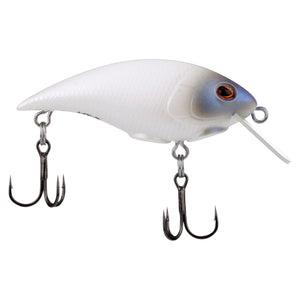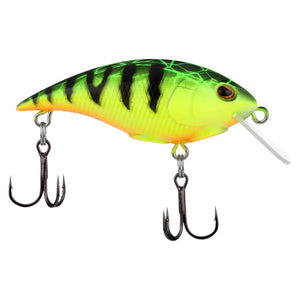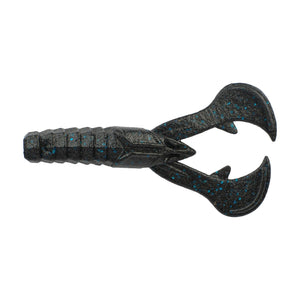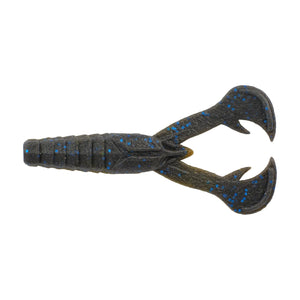Bass fishing is a popular recreational sport that targets bass and is typically for sport or leisure rather than commercial purposes.
Ontario is an ideal province for bass fishing thanks to the province's abundance of lakes, rivers, and reservoirs teeming with various bass species, including largemouth bass and smallmouth bass.
With proper preparation and knowledge, bass fishing in Ontario can be a fun and rewarding experience. That’s why we put together the ultimate guide to help you have a successful bass fishing trip in Ontario, whether you're a novice angler or a seasoned pro.
Let’s start by exploring what makes bass fishing unique from other types of angling, then dive into specific tips to help you have an excellent bass fishing experience in Ontario.
What is Unique About Bass Fishing?
You can find dedicated anglers pursuing bass in various bodies of water, including lakes, rivers, reservoirs, and ponds. But why is bass fishing one of North America's most popular forms of freshwater fishing?
The various elements of bass fishing are a large part of what draws anglers to the species, which include:
- Target species: The primary target species in bass fishing are largemouth bass and smallmouth bass. These fish are known for their fighting abilities and are often sought after for sport due to their size and aggression.
- Tackle and gear: Bass fishing requires specific tackle and gear, including fishing rods, reels, lines, and various lures or baits. Generally speaking, equipment is chosen based on the fishing technique and the size of the targeted bass.
- Fishing techniques: Every type of fishing and often the specific target species uses various techniques for a successful trip. Bass fishing is no exception and employs a wide range of techniques and strategies, such as:
- Flipping and pitching: This fishing technique accurately delivers lures or baits into specific target areas near cover or structures where bass are likely to hide.
- Topwater fishing: Surface lures are used to mimic prey on the water's surface, creating exciting visual strikes when bass attack. Spinnerbaits, crankbaits, jigs, plastic worms, and soft plastics are among the popular lures and baits used in bass fishing.
- Habitat and locations: Bass are commonly found in various types of freshwater environments, which vary by the specific species:
- Largemouth bass prefer shallow, weedy waters with plenty of cover, such as lakes, ponds, and slow-moving rivers.
- Smallmouth bass thrive in clear, rocky, and cooler waters, which are often rivers, streams, and rocky lakes.
- Seasons and behaviour: Bass behaviour varies throughout the year due to seasonal changes, creating new challenges throughout the year. Successful anglers adjust their techniques and locations based on these seasonal patterns:
- Spring: Bass spawn and move to shallower waters.
- Summer: Seeking cooler waters drives bass to deeper areas.
- Fall: Bass feed aggressively before winter, making it an ideal angling season.
- Competitions and tournaments: Bass fishing competitions and tournaments are popular in many regions, which helps make it a popular species to target. Anglers participate in these events to showcase their skills, win prizes, and compete against other enthusiasts.
Bass fishing is a diverse and dynamic sport that offers something for anglers of all levels, from beginners to seasoned professionals.
How to Have an Amazing Bass Fishing Trip
Bass fishing is about catching fish and enjoying the outdoors, honing angling skills, and appreciating the beauty of natural environments. Catching the night’s meal is undoubtedly a benefit, but there’s much more to enjoy about a bass fishing trip.
So, let's dive into how you can prepare for a memorable and rewarding bass fishing trip.
Understand the Target Bass Species
Ontario is home to both largemouth and smallmouth bass. Each has its own characteristics and habitat preferences. Understand how each species relates to structure and cover, like weed beds, rocks, fallen trees, and docks. Using polarized sunglasses to spot bass and their potential hiding spots is wise.
Get the Right Fishing License
Make sure you have the appropriate fishing license for the location you plan to fish. Ontario offers resident and non-resident licenses with varying durations. Additionally, familiarize yourself with the fishing regulations and size limits for bass in the specific waters you'll be fishing.
Licensing and other regulations help protect the population of fish in the region — don’t skip over them.
Choose the Right Gear
Select a suitable fishing rod and reel combo while also stocking up on various bass lures, including soft plastics, jigs, crankbaits, topwater lures, and spinnerbaits.
A medium-heavy to heavy-power spinning or baitcasting rod is ideal for largemouth bass, while a medium-power setup is suitable for smallmouth bass.
Use monofilament or braided line for largemouth bass in heavy cover and fluorocarbon for clear water and smallmouth bass.
Research Fishing Locations
Ontario offers numerous bass fishing hotspots, including Lake Simcoe, Lake Erie, Lake Ontario, Georgian Bay, and many inland lakes and rivers. Consult local fishing guides or check with tackle shops for up-to-date information on where the bass are biting.
Practice Catch and Release
Many bass anglers practice catch and release to help conserve bass populations. This method involves releasing caught fish back into the water, minimizing harm and stress to the fish. Handle fish with care, use barbless hooks, and release them quickly to minimize stress and injury.
Experiment with Different Techniques
Be versatile in your approach. Try various techniques such as flipping, pitching, drop-shotting, and finesse fishing to find what works best on a given day. Trying new techniques helps you discover what works best and what you enjoy the most. From there, you can keep getting better at the techniques you like.
Be Weather-Wise and Safe
Pay attention to weather conditions, as factors like temperature, wind, and barometric pressure can influence bass activity. Early morning and late evening are often the best times to fish.
Make sure you bring the right clothing to stay safe, comfortable, and know when it’s time to leave if the weather looks like it’ll worsen.
Additionally, prioritize safety at all times, including wearing a life jacket at all times when on the water. Let someone know your fishing plans, location, and expected return time, especially if you're fishing alone.
Respect the Environment
Follow ethical angling practices, including properly disposing of trash and respecting private property. Clean your gear to prevent contaminating the water source with new bacteria or viruses.
Keep the area in the best possible condition so both you and future generations can make it a destination for fishing trips.
Keep Records
While not mandatory, consider maintaining a fishing journal to record your experiences, including locations, conditions, and successful techniques. The goal is to help you plan future trips. You can review past trips to see what went right and what went right, helping you bring the right bait, lines, and other gear.
Keeping a fishing journal can also be enjoyable in its own right. You don’t have to stick to the practical details, but you can also detail the overall experience and any takeaways from spending time in nature.
Gear Up for Bass Fishing with Angling Sports
Bass fishing in Ontario offers plenty of opportunities for anglers of all skill levels. By following our above guide and practicing responsible angling, you can enjoy a memorable and successful bass fishing adventure in the province's beautiful waters.
Angling Sports has everything you need for your next trip from industry-leading brands. Ready to find all the equipment you need for bass fishing? Shop bass fishing products from Angling Sports to prepare for your next — or first — bass fishing trip.









